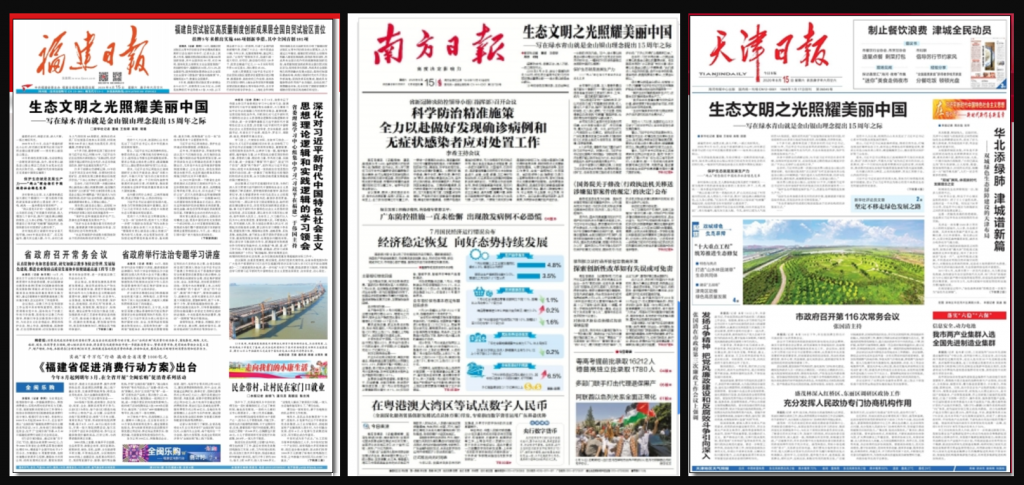One of the privileges of being the “core” leader of the Chinese Communist Party is that history can be rewritten to place you right at the center. So it is this week with thinking on environmental policy in China.
People’s Daily Online today features two articles on the so-called “two mountains theory,” or liangshanlun (两山论), the three-character phrase meant to stand for what elsewhere has been called “Xi Jinping Thought on Ecological Civilization” (习近平生态文明思想), essentially the top leader’s claim to China’s record on sustainable development.
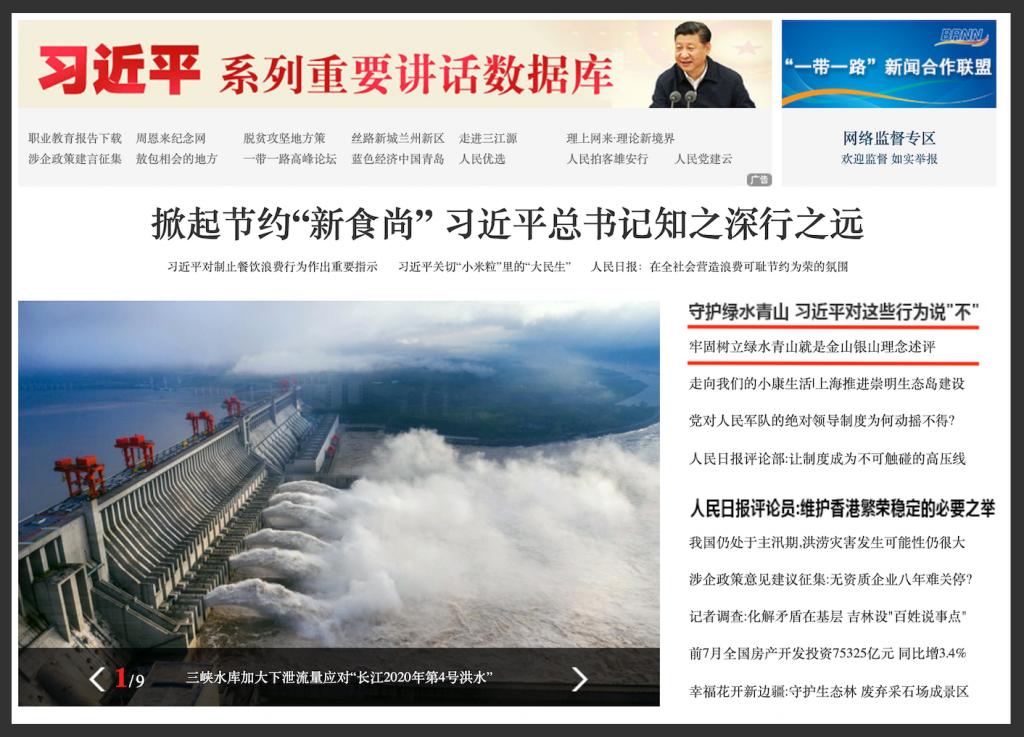
But this is not really about sustainable development – or not primarily. It is, like so much in the “new era,” about elevating the power and personality of Xi Jinping. And that requires mythmaking, and a very creative view of history.
The phrase “two mountains theory” emerged, as CMP wrote back in June, from a longer phrase, rather repetitive and roundabout in English, that is traced to Xi’s September 7, 2013, speech at Nazarbayev University in Kazakhstan: “We want green waters and green mountains, but we also want gold mountains and silver mountains. It is better to have green waters and green mountains than gold mountains and silver mountains – and green waters and the green mountains are gold mountains and silver mountains.” This is Xi’s way of saying, with his usual fondness for metaphor, that while economic development is a priority, the environment cannot be sacrificed for the sake of growth.
According to the newly-minted creation myth of the “two mountains theory,” Xi Jinping actually hatched this idea about sustainable development 15 years ago during a visit to a village in rural Zhejiang. The date was August 15, 2005, which means that tomorrow party-state media will be loudly proclaiming the 15th anniversary of the “two mountains theory,” giving Xi Jinping bragging rights over the ideological underpinnings of two decades official environmental policy in China (just as he has had bragging rights too this week over the revolutionary idea that people shouldn’t waste food).
One of the abovementioned articles at People’s Daily Online today – a propaganda piece that apparently took four reporters to write – credits Xi Jinping with the “two mountains theory,” which subsequently became the consensus, and then action, and then “had a profound and long-standing impact.” But as CMP has shown, the idea is not Xi’s, not by a long shot. A look through the media archives shows that very similar phrasing was used as early as 1995, well back into the Jiang Zemin era. And almost identical phrasing was used in the People’s Daily newspaper on October 24, 2003, uttered by then director of the Ministry of Environmental Protection (MEP), Xie Zhenhua (解振华).
The “two mountains theory” is not Xi’s theory at all. This much is clear from the Party’s own press history. But in the effort to consolidate the power of the “core,” legacies can ride roughshod over histories — and anniversaries be celebrated for moments that never were.
_____________________________________________________
UPDATE August 15: As we supposed, the “anniversary” of the “two mountains theory” is being loudly promoted today.
Here is the front page of the People’s Daily, dominated by the “two mountains.”
15年的绿色发展实践,生动诠释这一论断的深刻内涵。如今,绿水青山就是金山银山理念已经成为全党全社会的共识和行动,一幅新时代的绿色画卷正在美丽中国恢弘铺展!
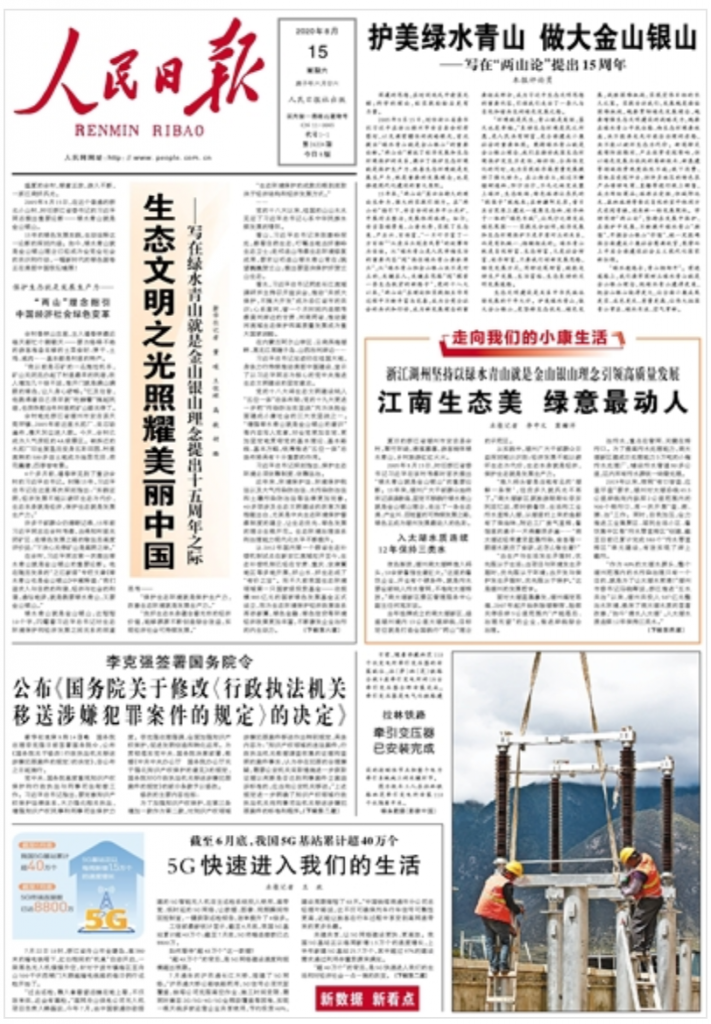
And People’s Daily Online has topped the headlines with the anniversary too.
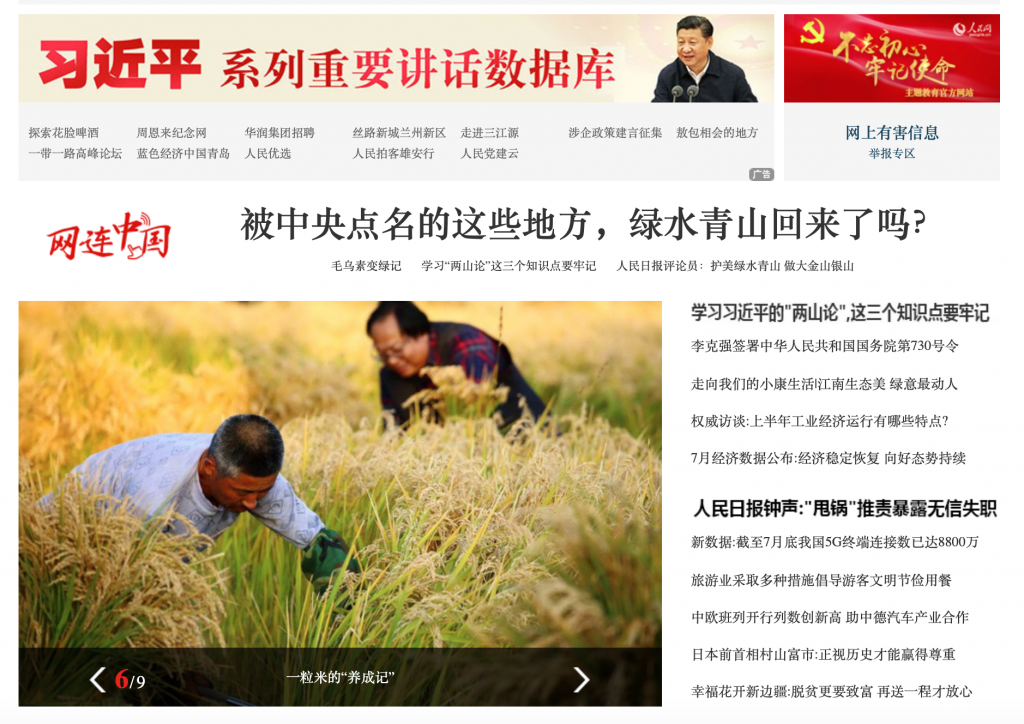
Xinhua News Agency? Naturally. Its top story, it says, is “written on the occasion of the 15th anniversary of the mention of the gold mountain, silver mountain concept” (写在绿水青山就是金山银山理念提出15周年之际).
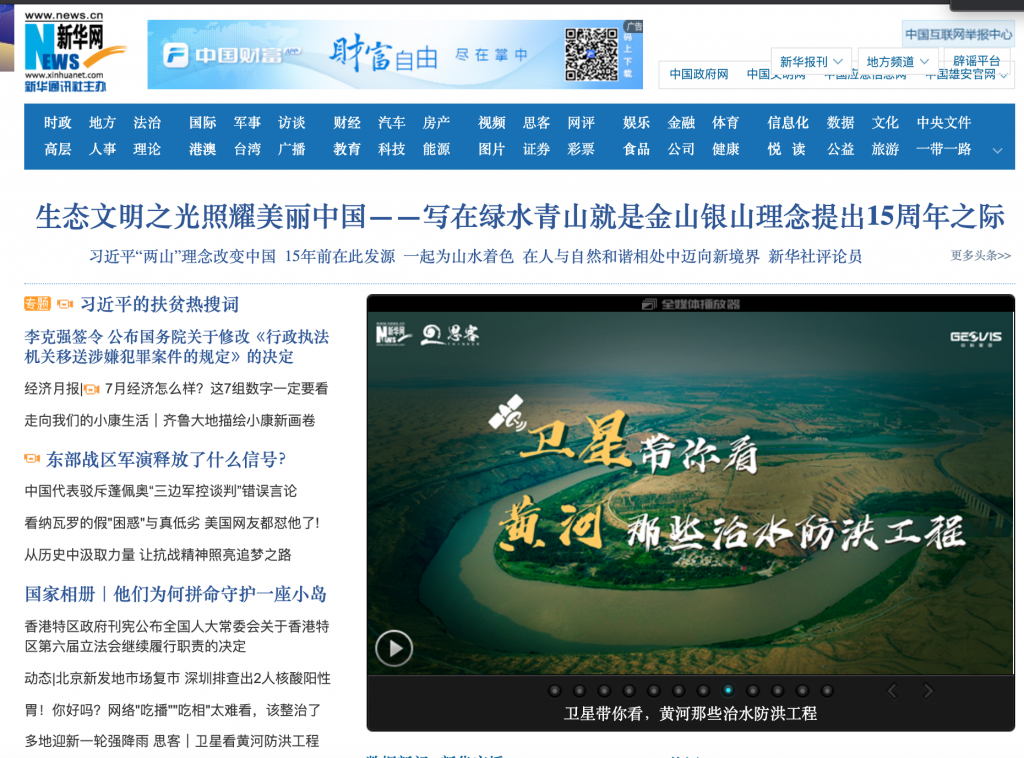
And here is Zhejiang Daily, the CCP mouthpiece in Zhejiang province, where Xi is reputed to have invented the concept. The “anniversary” is the top piece right next to the masthead.
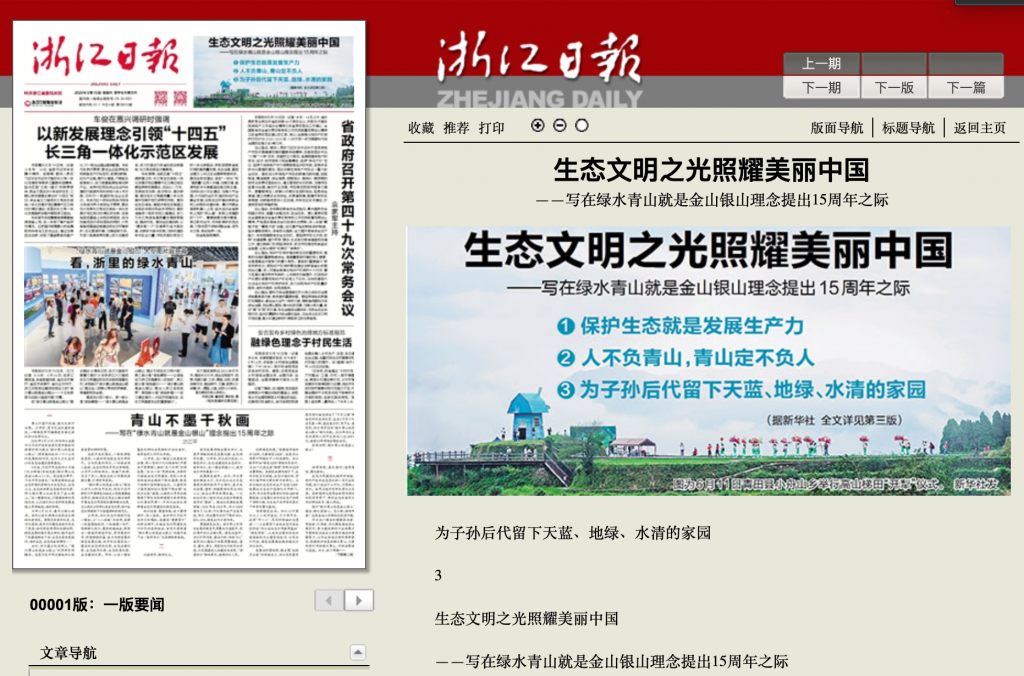
All provincial and city newspapers seem to be running the same exact piece on the front page today, helping to build the historical legacy in reverse.
